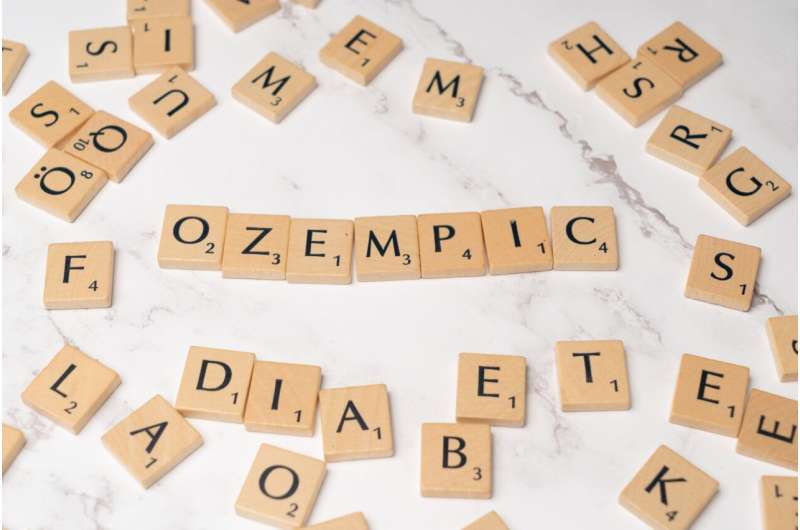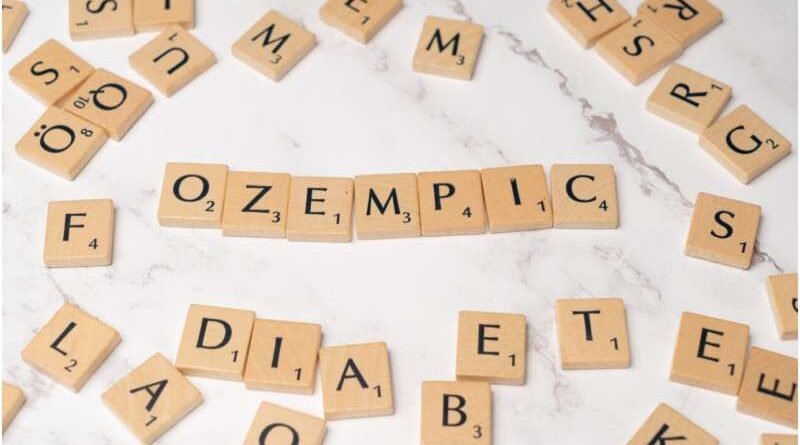Does microdosing Ozempic work? What experts say about diabetes drugs are also used for weight loss

Credit: Markus Winkler from Pexels
The high cost and side effects of Ozempic, a blockbuster diabetes drug also used for weight loss, have led people to stretch their supply by taking the medication in smaller, smaller doses.
But the effectiveness of microdosing Ozempic has not been controlled by clinical trials, says Northeastern professor Mansoor Amiji.
A small dose can be as much as one-tenth of the prescription dose, says Amiji, a distinguished professor of pharmaceutical sciences and chemical engineering at the university.
“No one has done clinical studies at a tenth of the dose to show whether it works or not,” he says.
Ozempic, the trade name of semaglutide, is a weekly injectable medication in the class of GLP-1 receptor agonists used to lower blood sugar in people with type 2 diabetes.
Doses start at 0.25 milligrams weekly and can eventually be increased to 2 milligrams weekly, according to GoodRx.
Ozempic is also prescribed for weight loss, which is considered an off-label treatment not covered by insurance.
The out-of-pocket cost of an injectable pen containing a full dose of Ozempic can cost more than $1,000—providing an incentive for people to stretch their treatments to a smaller dose.
Published reports say the cost has caused patients to take less of the popular drug to make it last longer.
And it’s not just Ozempic—other GLP-1 drugs like Wegovy, Mounjaro and Zepbound are part of the low-dose regimen, according to Healthline.
Amiji says: “I really understand that these drugs are expensive. He says people think, “‘If I can spread the drugs for a long time, it is better from a cost perspective.’
“But micro dosing, in my opinion, is not the solution to that,” Amiji says.
Another reason people may use a smaller dose is to avoid side effects that can include nausea, diarrhea, vomiting, and muscle loss.
“But,” asked Amiji, “does it still work?”
Reports of microdosing helping people remain “anecdotal,” he says. “There is no evidence.”
It is easy to see why people might be tempted to take Ozempic as it is considered beneficial not only for weight loss but also for improved heart health, reducing depression and even reduce the risk of opioid overdose.
“We’re now seeing a lot of preclinical evidence for benefits in some disease states,” Amiji says.
He calls these studies comforting but hopes for the day when “scientifically rigorous clinical data” can back up the claims.
Current reports are not based on placebo-controlled trials, Amiji says. “It’s mostly anecdotal evidence. It’s not a standard test that allows you to look at data and make comparisons.”
Amiji says he would like to see the cost of GLP-1 reduced so that more people can benefit from its proven benefits.
And he says whether people use a full dose or a small dose, they must always make sure they use a clean needle to avoid infection problems.
Offered by Northeastern University
This story is republished with permission from Northeastern Global News news.northeastern.edu.
Excerpt: Does microdosing Ozempic work? What experts say about diabetes drug used for weight loss (2024, October 21) Retrieved on October 21, 2024 from https://medicalxpress.com/news/2024-10-microdosing -ozempic-experts-diabetes-drug.html
This document is subject to copyright. Except for any legitimate activity for the purpose of private study or research, no part may be reproduced without written permission. Content is provided for informational purposes only.
#microdosing #Ozempic #work #experts #diabetes #drugs #weight #loss
